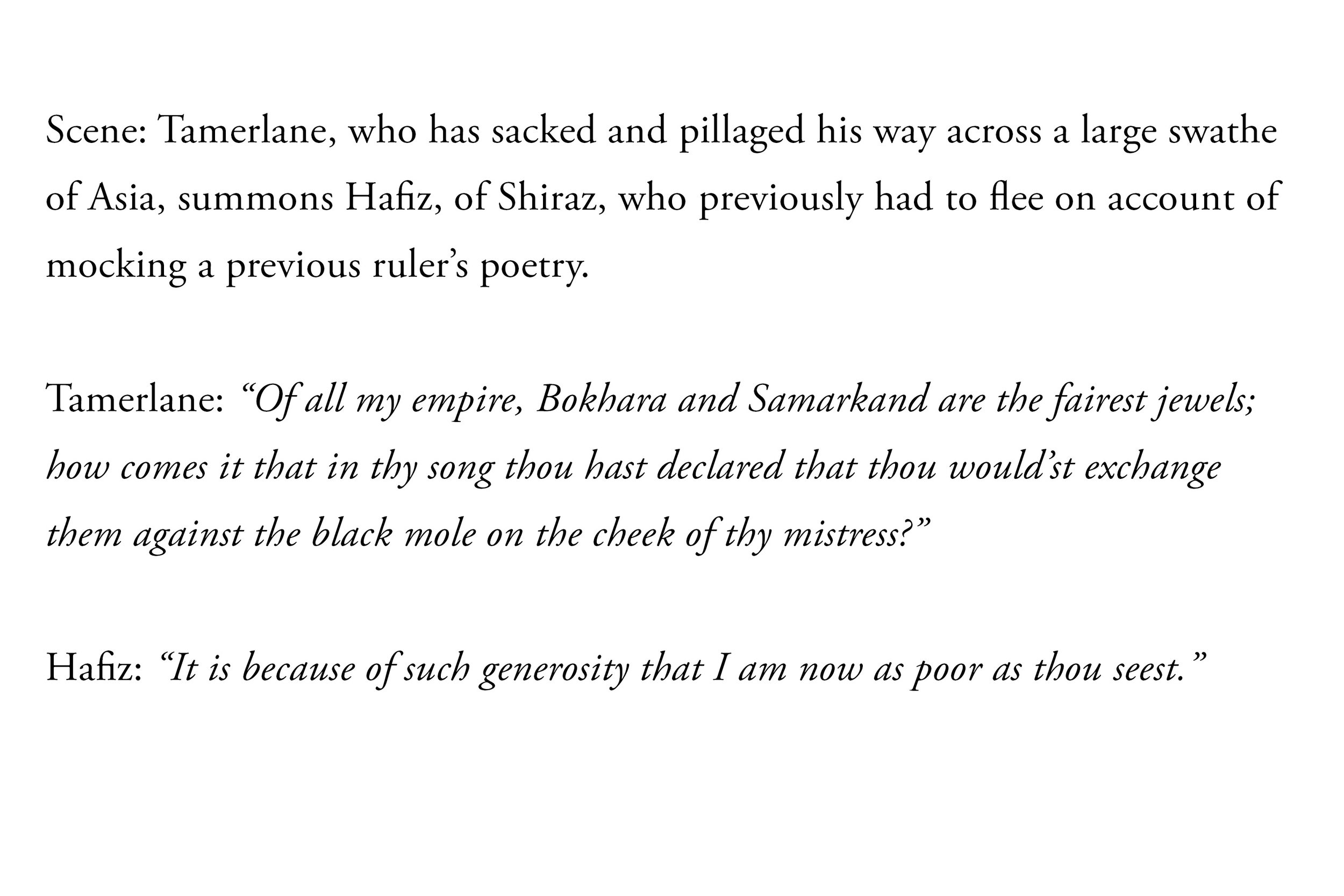

Looking south, from the hills west of Shiraz’s Qu’ran Gate.
“The South, the blessed south! It gives me the same exhilaration as a first morning by the Mediterranean. The sky shines without a cloud. The black spires of cypresses cut across the eggshell-coloured hills and the snow-capped purple of distant mountains. Turquoise leek-shaped domes on tall stems rise from a sea of flat mud roofs. Tangerines hang from trees in the hotel garden. I am writing in bed, the windows are open, and the soft spring air breaths paradise in to last night’s frosty cubicle.”
- Robert Byron (1937), The Road to Oxiana. From his diary entry dated February 17, 1935.
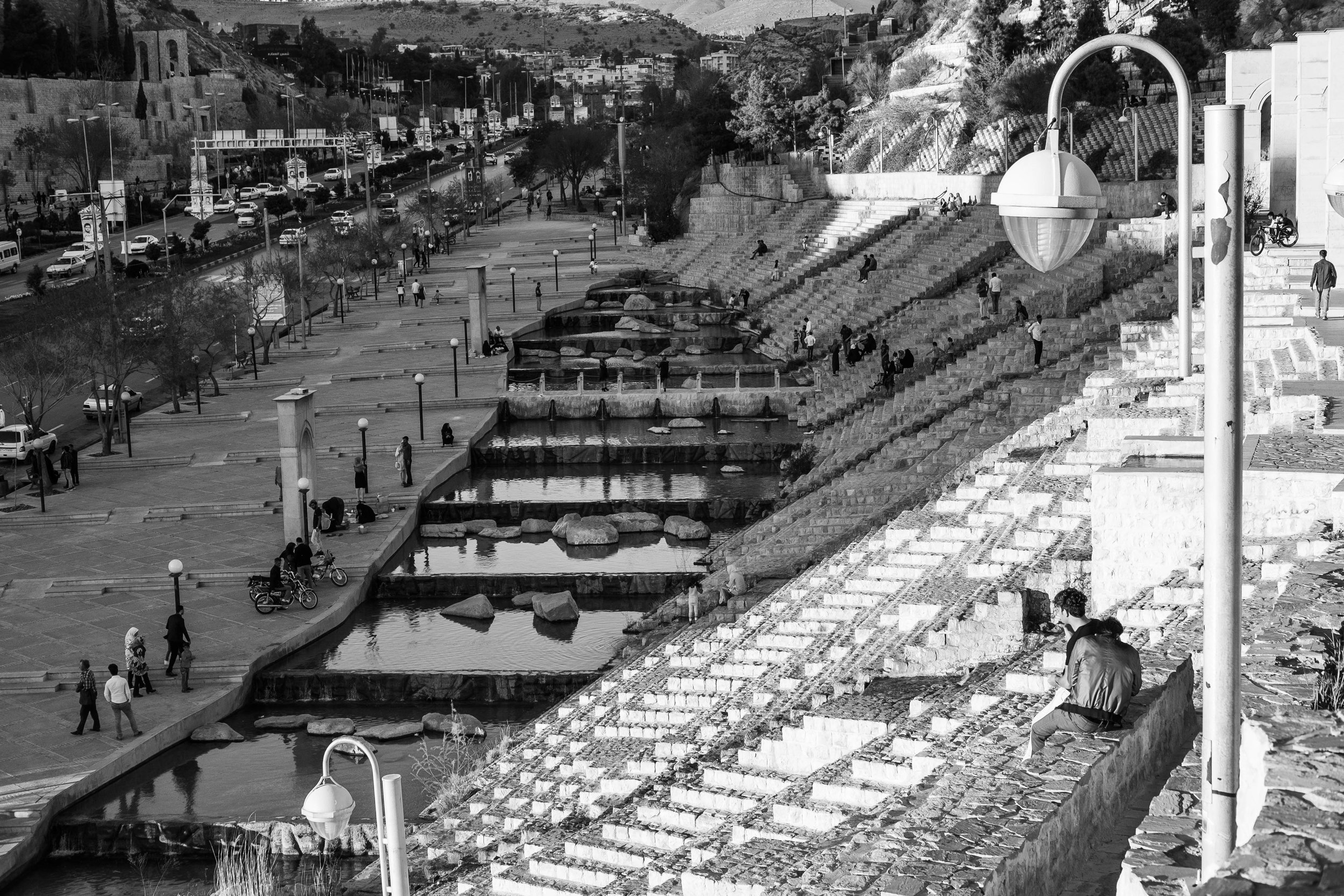
Along the main road north, to Isfahan and Yazd.
“It conteigneth innumerable people, and is full of merchaunts; for all they that come from the vpper parties, that is to say, frome ERE [near Tehran], SAMARCAHANTH [Samarkand], and NISU [no idea], taking the waie throwgh Persia, do passe by Syras [Shiraz]. Hither arr brought many jewelles, sylkes, both great and small, spices, rewbarbe, and semenzina [a certain kind of drug]”.
- Josafa Barbaro and Ambrogio Contarini (1873), Travels to Tana and Persia, translated by William Thomas. This was Barbaro’s account from his visit in 1474-5.
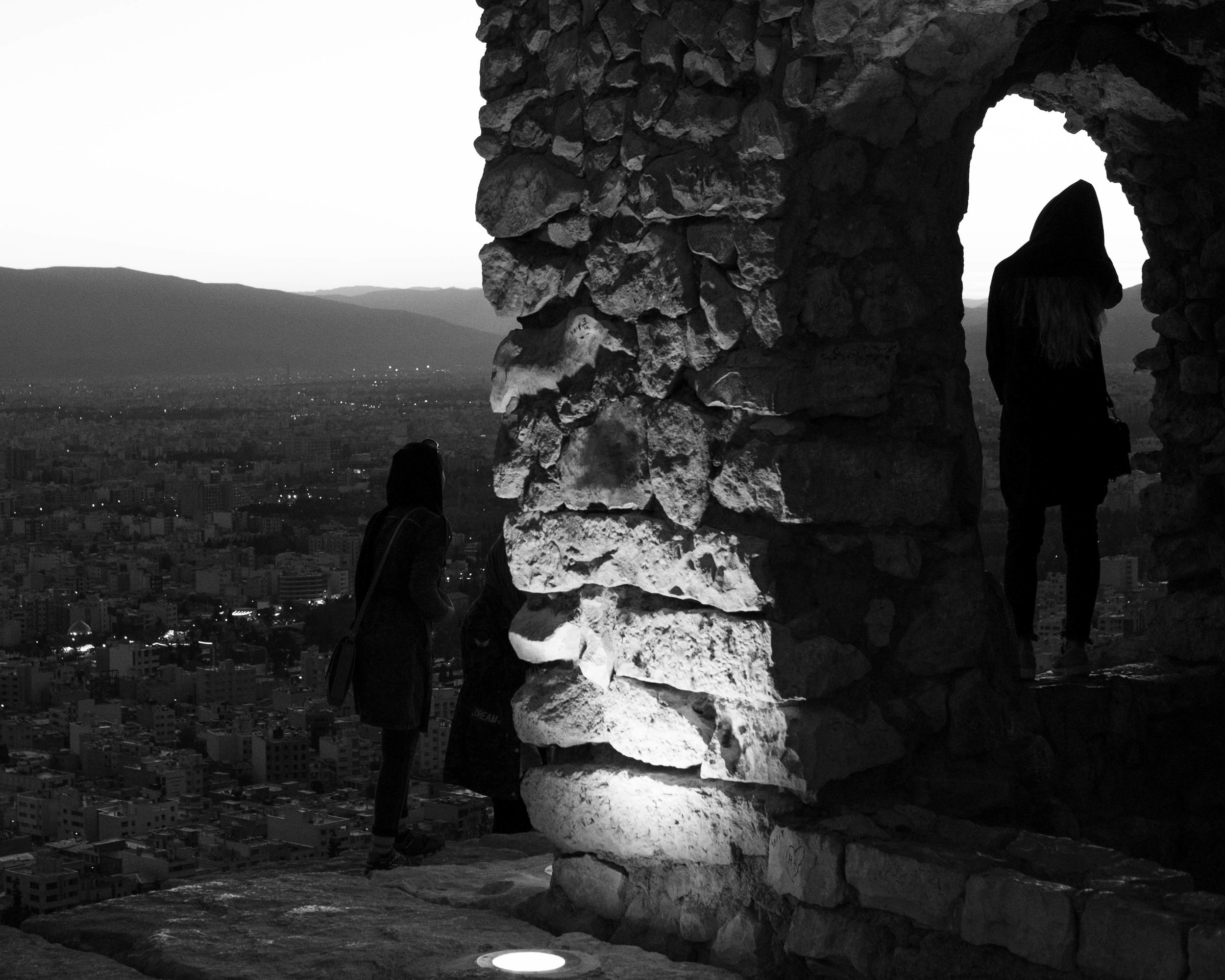
“We just got robbed when walking up there!!
The view isn't that great anyway.”
- Tripadvisor Review of Gahvareh Did

A pair in Qajar-era dress, which is commonly for hire in and around Iran.
“For it is not only the graceful and melodious lays of Hafiz, Sa’di, or Ka’ani, which, accompanied by the soft strains of the si-tar and the monotonous beat of the dumbak, delight the joyous revellers who drink the wine of Khullar under the roses bordering some murmuring streamlet; interspersed with these are rhymes which, if less lofty, seldom fail to awaken the applause of the listeners.”
- Edward G. Browne (1893), A Year Amongst The Persians (from his stay in 1887-8)
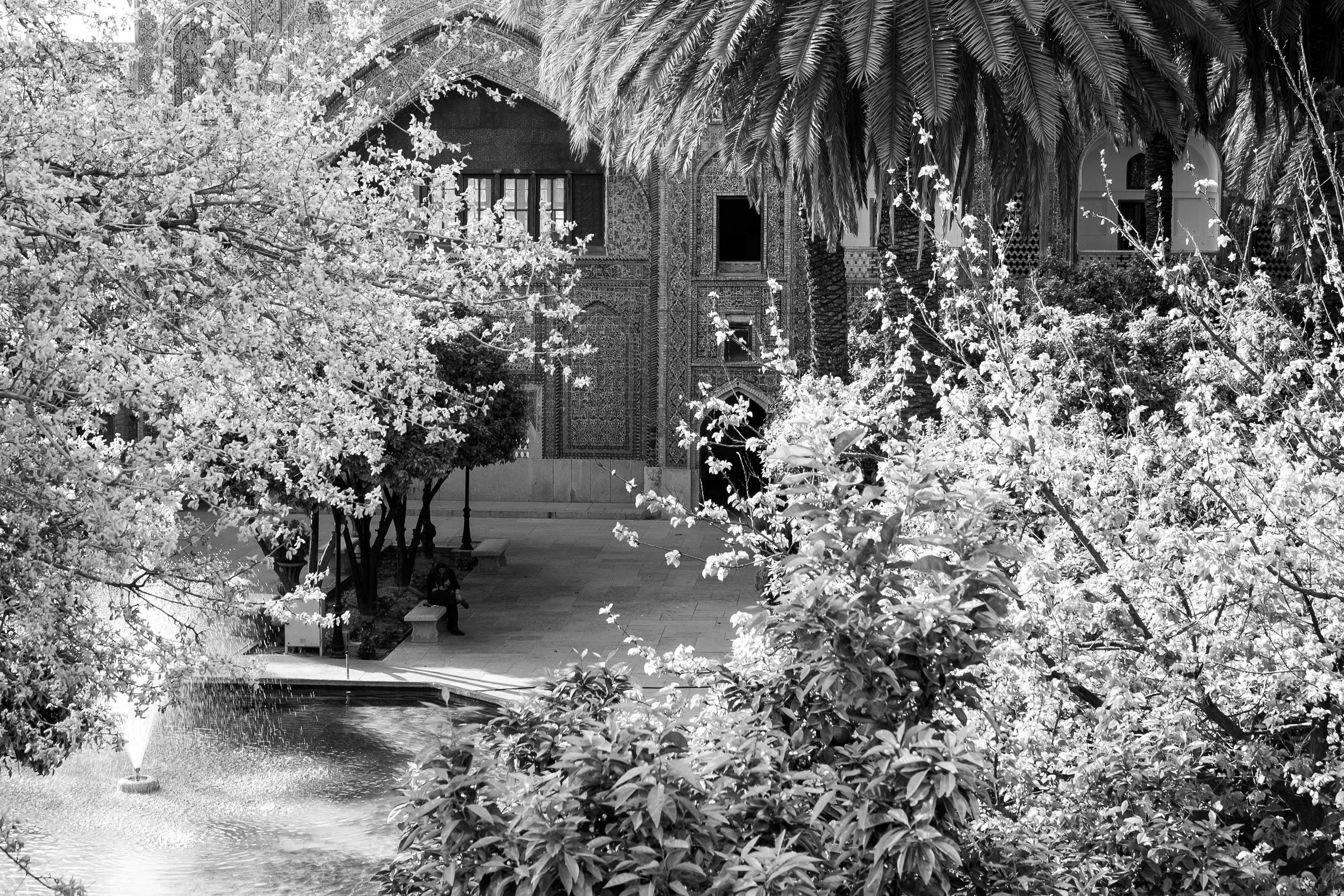
“After he had exhaustively questioned me concerning the amount of my income, the sources whence it was derived, my occupation, my object in visiting Persia, and the like, he expressed a great desire to travel in Europe.* ‘Do you think I could find any employment in England?’ he asked … ‘I am tired of the useless and aimless life we are compelled to lead here … every day it is the same thing:- in the morning we read or practise calligraphy till lunch; afterwards we sleep for an hour or two; then we have tea and smoke kalyans [hookahs]; then – unless we have visitors – we go for a ride or walk; then supper and bed. It is wearisome.’”
- Edward G. Browne (1893), A Year Amongst The Persians (from his stay in 1887-8)
* This exact conversation happened to me several times.
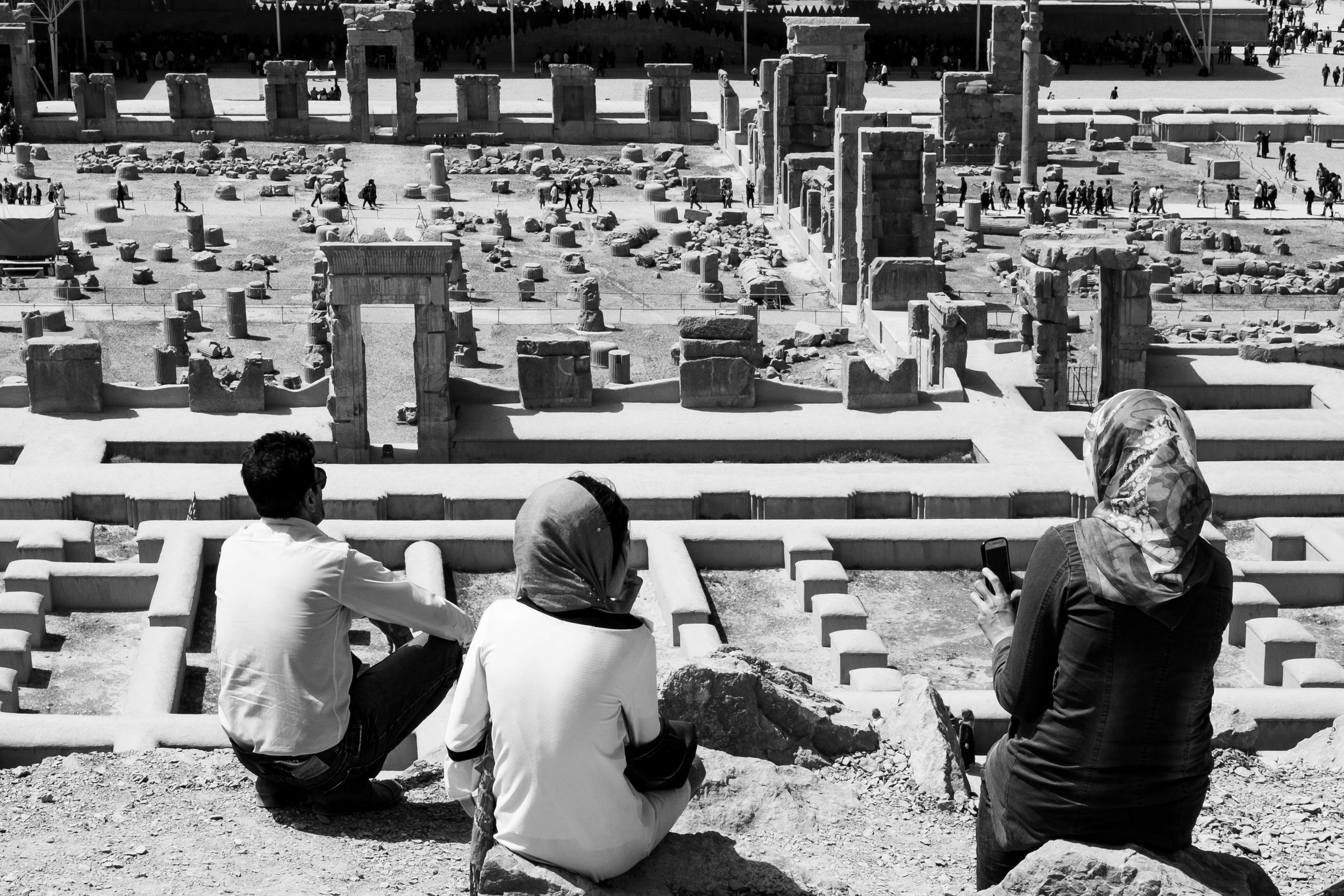
The ancient Persian capital built in ~550 BC.
“We were walking to Persepolis in the rain. The Quashgais [Turkic pastoralists] were soaked and happy, and the animals were soaked; and when the rain let up, they shook the water from their coats and moved on, as though they were dancing. We passed an orchard with a mud wall around it. There was a smell of orange blossom, after rain … Passing Persepolis I looked at the fluted columns, the porticoes, lions, bulls, griffins; the sleek metallic finish of the stone, and the line on line of megalomaniac inscription … I tried to get the Quashgai boy to look. Again he shrugged. Persepolis might have been made of matchsticks for all he knew or cared - and so we went up to the mountains.”
- Bruce Chatwin (1987), The Songlines
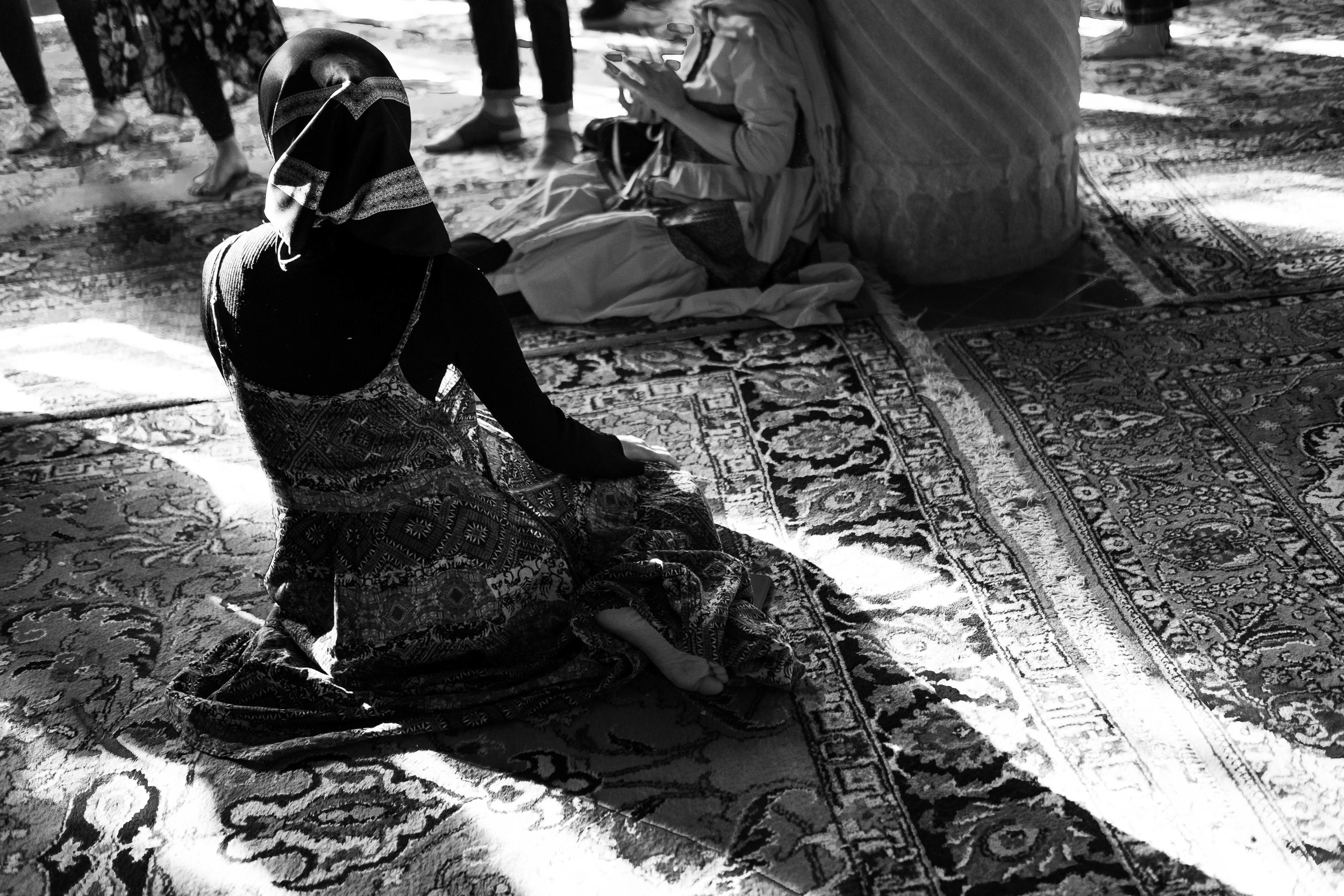
The stained glass windows shower the inside with colour.
“In the whole East there is no city that approached Damascus in beauty of bazaars, orchards and rivers, and in the handsome figures of its inhabitants, but Shiraz … the people of Shiraz are pious … especially the women, who have a strange custom. Every Monday, Thursday, and Friday they meet in the principal mosque to listen to the preacher, one or two thousand of then, carrying fans with which they fan themselves on account of the great heat. I have never seen in any land so great an assembly of women.”
- Ibn Battuta (1929), Travels in Asia and Africa 1325 – 54, translated by H. A. R. Gibb. Ibn Battuta visited in 1327.
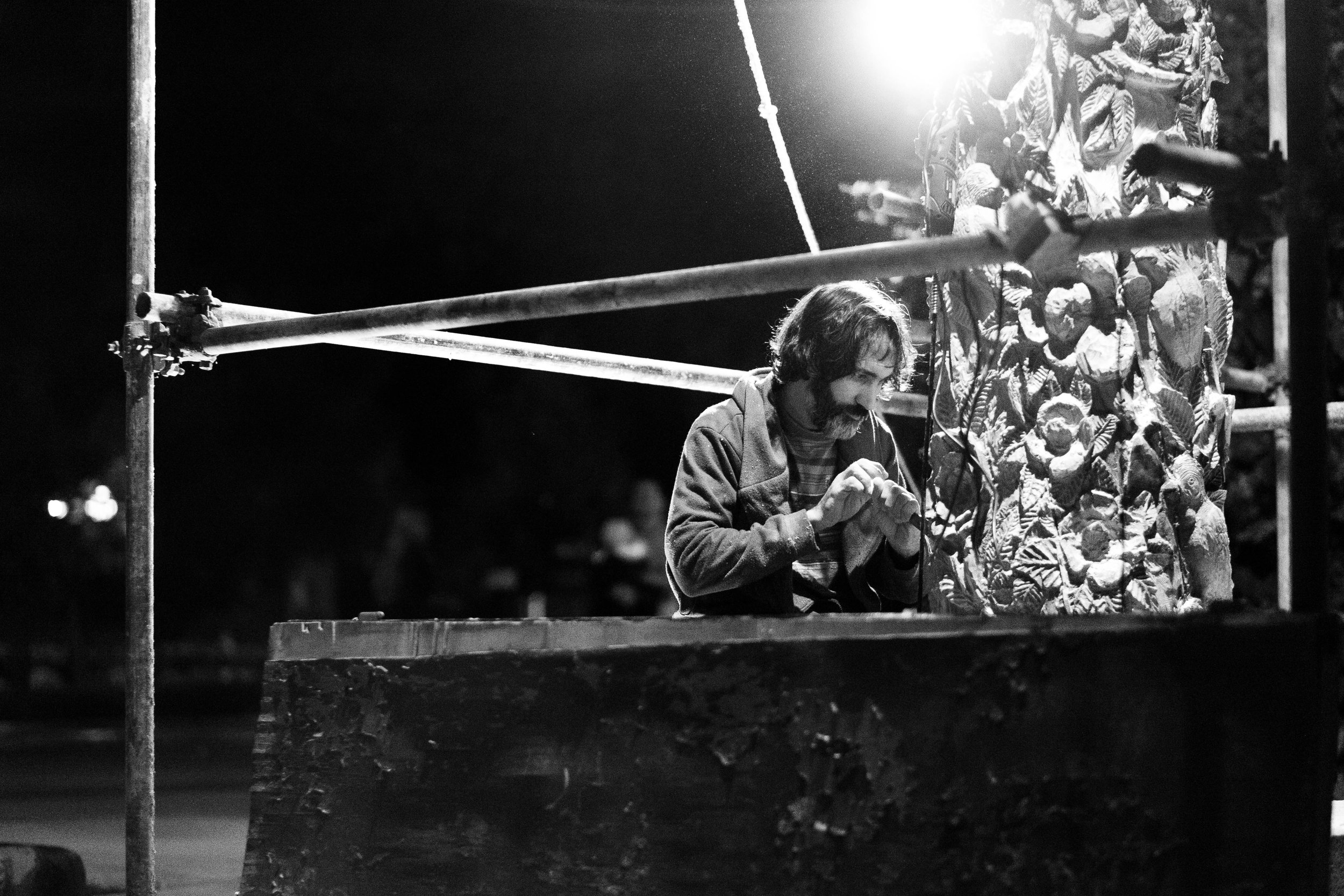
“His out-and-out pantheism, as well as his manner of life, caused him at his death to be denied burial in consecrated ground. The ecclesiastical authorities were, however, induced to relent in their plan of excommunication at the dictates of a passage from the poet’s writings … “turn not thy feet from the bier of Hafiz, for though immersed in sin, he will be admitted in to Paradise.” And so he rests in the cemetery at Shiraz, where the nightingales are singing and the roses bloom the year through, and the doves gather with low murmurs amid the white stones of the sacred enclosure.”
- The Divan, translated by Herman Bicknell, in Hafez - Delphi Poets Series (2017), Delphi Classics

“They have a story, that Kureem Khan riding through it [the Vakil Bazaar, which surrounds the mosque] soon after the work was completed, saw a nail driven into the wall, and detecting the offender, caused his head to be struck off.”
- Edward Scott Waring (1807), A Tour To Sheeraz
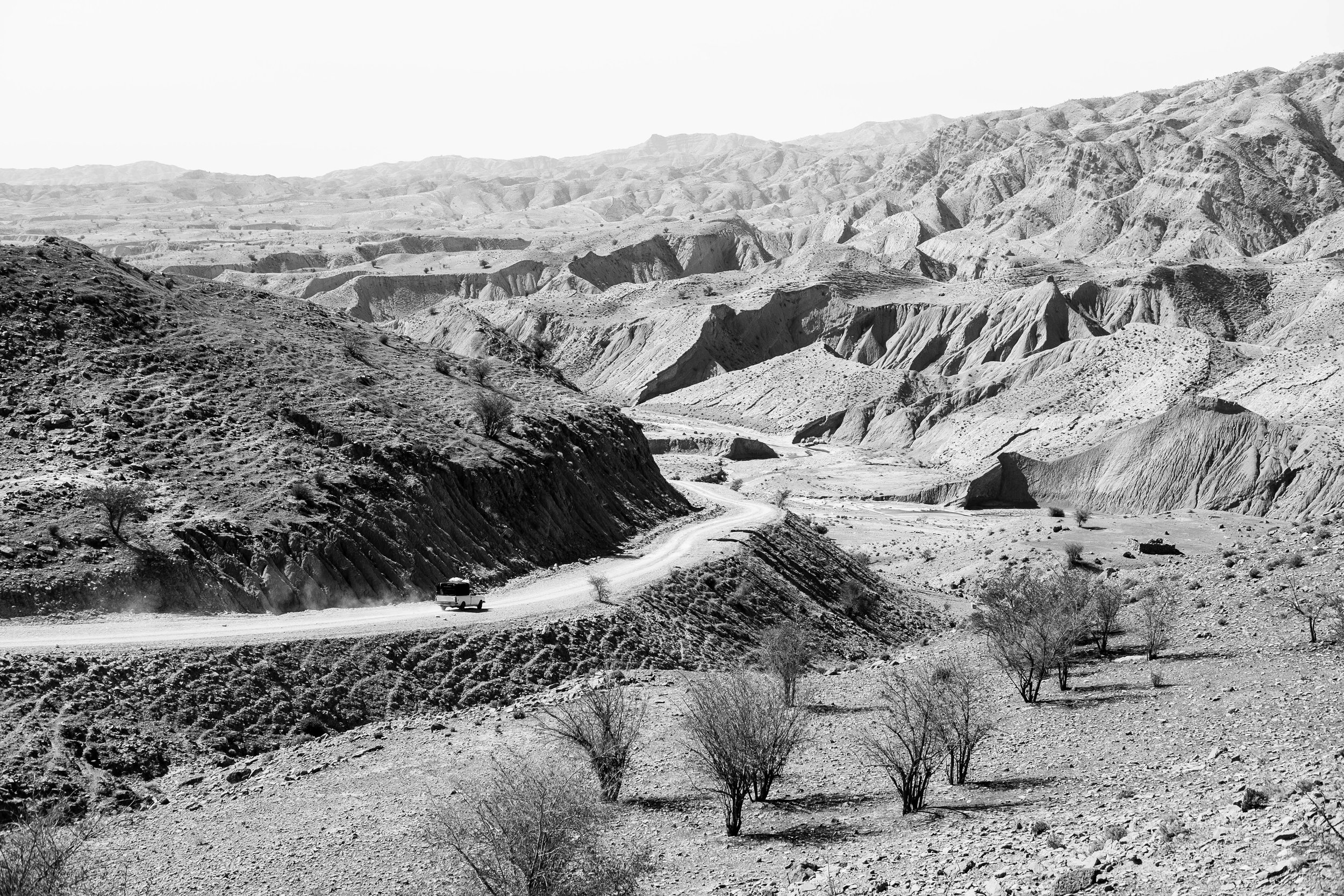
“To-day Shiraz offers no imposing appearance, but we would fain believe that it was far otherwise when its elder poet indited: ‘Sadi, night and day, sorrowing over Shiraz, says: That all cities are hawks, but our city is a royal eagle.’”
- Percy Sykes (1902), Ten Thousand Miles in Persia or Eight Years In Iran











Looking south, from the hills west of Shiraz’s Qu’ran Gate.
“The South, the blessed south! It gives me the same exhilaration as a first morning by the Mediterranean. The sky shines without a cloud. The black spires of cypresses cut across the eggshell-coloured hills and the snow-capped purple of distant mountains. Turquoise leek-shaped domes on tall stems rise from a sea of flat mud roofs. Tangerines hang from trees in the hotel garden. I am writing in bed, the windows are open, and the soft spring air breaths paradise in to last night’s frosty cubicle.”
- Robert Byron (1937), The Road to Oxiana. From his diary entry dated February 17, 1935.
Along the main road north, to Isfahan and Yazd.
“It conteigneth innumerable people, and is full of merchaunts; for all they that come from the vpper parties, that is to say, frome ERE [near Tehran], SAMARCAHANTH [Samarkand], and NISU [no idea], taking the waie throwgh Persia, do passe by Syras [Shiraz]. Hither arr brought many jewelles, sylkes, both great and small, spices, rewbarbe, and semenzina [a certain kind of drug]”.
- Josafa Barbaro and Ambrogio Contarini (1873), Travels to Tana and Persia, translated by William Thomas. This was Barbaro’s account from his visit in 1474-5.
“We just got robbed when walking up there!!
The view isn't that great anyway.”
- Tripadvisor Review of Gahvareh Did
A pair in Qajar-era dress, which is commonly for hire in and around Iran.
“For it is not only the graceful and melodious lays of Hafiz, Sa’di, or Ka’ani, which, accompanied by the soft strains of the si-tar and the monotonous beat of the dumbak, delight the joyous revellers who drink the wine of Khullar under the roses bordering some murmuring streamlet; interspersed with these are rhymes which, if less lofty, seldom fail to awaken the applause of the listeners.”
- Edward G. Browne (1893), A Year Amongst The Persians (from his stay in 1887-8)
“After he had exhaustively questioned me concerning the amount of my income, the sources whence it was derived, my occupation, my object in visiting Persia, and the like, he expressed a great desire to travel in Europe.* ‘Do you think I could find any employment in England?’ he asked … ‘I am tired of the useless and aimless life we are compelled to lead here … every day it is the same thing:- in the morning we read or practise calligraphy till lunch; afterwards we sleep for an hour or two; then we have tea and smoke kalyans [hookahs]; then – unless we have visitors – we go for a ride or walk; then supper and bed. It is wearisome.’”
- Edward G. Browne (1893), A Year Amongst The Persians (from his stay in 1887-8)
* This exact conversation happened to me several times.
The ancient Persian capital built in ~550 BC.
“We were walking to Persepolis in the rain. The Quashgais [Turkic pastoralists] were soaked and happy, and the animals were soaked; and when the rain let up, they shook the water from their coats and moved on, as though they were dancing. We passed an orchard with a mud wall around it. There was a smell of orange blossom, after rain … Passing Persepolis I looked at the fluted columns, the porticoes, lions, bulls, griffins; the sleek metallic finish of the stone, and the line on line of megalomaniac inscription … I tried to get the Quashgai boy to look. Again he shrugged. Persepolis might have been made of matchsticks for all he knew or cared - and so we went up to the mountains.”
- Bruce Chatwin (1987), The Songlines
The stained glass windows shower the inside with colour.
“In the whole East there is no city that approached Damascus in beauty of bazaars, orchards and rivers, and in the handsome figures of its inhabitants, but Shiraz … the people of Shiraz are pious … especially the women, who have a strange custom. Every Monday, Thursday, and Friday they meet in the principal mosque to listen to the preacher, one or two thousand of then, carrying fans with which they fan themselves on account of the great heat. I have never seen in any land so great an assembly of women.”
- Ibn Battuta (1929), Travels in Asia and Africa 1325 – 54, translated by H. A. R. Gibb. Ibn Battuta visited in 1327.
“His out-and-out pantheism, as well as his manner of life, caused him at his death to be denied burial in consecrated ground. The ecclesiastical authorities were, however, induced to relent in their plan of excommunication at the dictates of a passage from the poet’s writings … “turn not thy feet from the bier of Hafiz, for though immersed in sin, he will be admitted in to Paradise.” And so he rests in the cemetery at Shiraz, where the nightingales are singing and the roses bloom the year through, and the doves gather with low murmurs amid the white stones of the sacred enclosure.”
- The Divan, translated by Herman Bicknell, in Hafez - Delphi Poets Series (2017), Delphi Classics
“They have a story, that Kureem Khan riding through it [the Vakil Bazaar, which surrounds the mosque] soon after the work was completed, saw a nail driven into the wall, and detecting the offender, caused his head to be struck off.”
- Edward Scott Waring (1807), A Tour To Sheeraz
“To-day Shiraz offers no imposing appearance, but we would fain believe that it was far otherwise when its elder poet indited: ‘Sadi, night and day, sorrowing over Shiraz, says: That all cities are hawks, but our city is a royal eagle.’”
- Percy Sykes (1902), Ten Thousand Miles in Persia or Eight Years In Iran